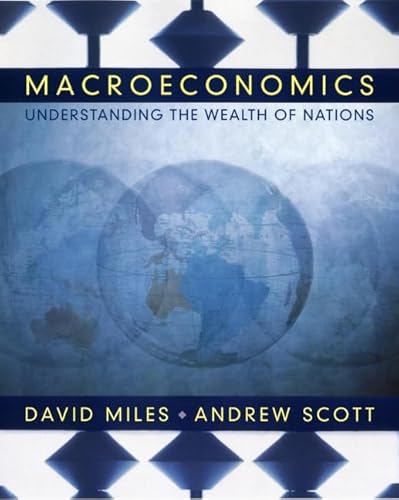Miles and Scott deal with sophisticated issues using advanced economic theory but in a manner that is accessible to someone taking a single course in macroeconomics. They discuss real world economic issues and first describe why these issues matter before discussing economic theory. In explaining why certain economic events occur the authors utilise logical economic thinking and modelling but they only introduce models after the real world problem of interest has first been discussed. A distinguishing feature of this text is the focus on the data and detail of the world economy and the use of this material as an entry point into the world of theory.
This text is particularly suited to MBA and business students, and more generally to those who want to understand macroeconomics but are not aiming to become specialists. David Miles and Andrew Scott's
MACROECONOMICS: UNDERSTANDING THE WEALTH OF NATIONS offers a fascinating and accessible account of how the world economy works and how economists analyze it.
The text presents a wide range of topics using extensive current and historical data. It begins by considering why some countries are richer than others and what makes nations grow over time. It then examines how the economy fluctuates between booms and recessions and how interest rates and monetary policy should be set. A distinctive feature of the text is its focus on the international economy with an extensive analysis of exchange rates and global capital markets. The final section explores the links between financial markets, such as bond, equity, and property markets, and the rest of the economy.
Features
- Up-to-date treatment of theory and research
- Wide geographic and historical coverage
- Extensive use of international data
- Exceptionally clear and accessible presentation of technical material
- Comprehensive coverage of current macroeconomics topics
![]()
